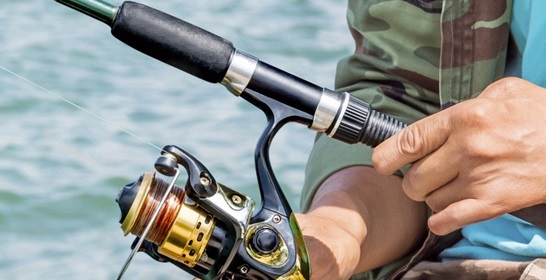 Freshwater fishing is one of the leading activities boaters enjoy doing. So, we decided to write a brief article highlighting 15 of the top freshwater fishing tips to educate anglers of all levels. No matter if you are a beginner or an advanced fisher, these tips are sure to educate you or refresh your understanding of freshwater fishing.
Freshwater fishing is one of the leading activities boaters enjoy doing. So, we decided to write a brief article highlighting 15 of the top freshwater fishing tips to educate anglers of all levels. No matter if you are a beginner or an advanced fisher, these tips are sure to educate you or refresh your understanding of freshwater fishing.
What is Freshwater Fishing?
Before we dive into some of the best freshwater fishing tips and tricks, it is important to understand what freshwater fishing is. If you are fishing in a body of water that has less than 0.05% salinity, you are technically freshwater fishing. Freshwater can be found in man-made or naturally occurring lakes, streams, rivers or ponds. These bodies of water hold an entirely different species of marine life than saltwater ultimately changing the way you should fish.
Freshwater Fishing Tips and Tricks
So, now that you know where freshwater is located, it’s time to learn how to improve your freshwater fishing skills with our list of important tips, tricks and techniques:
1. Do your research! This may seem like a common sense tip, but knowing exactly when the best times are to catch certain freshwater fish is extremely important. Particular times of day produce certain temperatures and fish activity varies based on the relationship between time and temperature. You should also be proactive and know what kinds of fish the region holds and adjust your fishing techniques, style and bait to successfully attract particular types of fish. This tip is extremely important and often means the difference between catching 10 fish or 0. Overall, a basic principle that many fishers follow is to fish at sunrise and dusk because freshwater fish usually feed during these times and the temperature is optimal increasing their energy levels.
2. Wash your hands before you fish! This may seem crazy, however fish have an extremely good sense of smell and will be able to smell any foreign scents on your bait. We suggest washing your hands with an unscented soap to ensure that your hands don’t have a peculiar fragrance that rubs off on your lures or rigs.
3. Whatever area you decide to fish in, it’s important to have a topographical map of the body of water. This will enable you to discover different depths and parts of the lake that could yield a large amount of hits or bites.
4. If you fish in a lake or river, navigate to areas where the water depth changes from shallow to deep. Almost every type of freshwater fish gathers in this area at specific times during the day to look for food. You should reference the Fishing Tips Depot for more information on specific fish species’ feeding times and activity patterns. You should utilize your topographical map to help you locate these areas as well.
5. There are a variety of reasons to use shiny fishing lures especially when salt water fishing. However, most freshwater fish often get blinded by shiny lures and hooks and become confused. We suggest using matted metal hooks and lures to minimize reflection on extremely sunny days.
6. Many anglers use worms as bait for freshwater fishing but locusts are regarded as an excellent choice as well. Locusts create excellent action and also release a buzzing or rattling sound that attracts fish.
7. If you decide to use live bait, make sure to research the particular freshwater fish you intend on catching so you use the appropriate bait. Overall, the most common types of bait used are worms, locusts, minnows, wax worms and soft shell crayfish. Other types of live bait anglers use are frogs and leeches.
8. Use a slip bobber! A slip bobber is an easy setup to use when fishing in freshwater. A slip bobber is a bobber with a hole going through it. All you have to do is tie a knot and stopper above the bobber at an appropriate length and cast away.
9. We suggest casting close to the shoreline in mossy areas because freshwater fish typically convene in these locations to look for food.
10. You should learn more about the movement of your line when a fish hits your bait. Some freshwater fish like to nibble because they are curious while others swallow the bait whole. You will most likely feel repetitive bumps and see your line shake if the fish is nibbling. However, once you notice your rod bend, we suggest pulling up on the rod to set the hook in the fish’s mouth. It is important that you don’t prematurely try to set the hook when the fish is investigating your bait.
Remember, you need to be patient when you fish. If you don’t learn to be patient, you will never be a successful fisher. Be poised and ready for that first strike and react successfully. If you decide to use a boat when fishing, ensure an easy launch with a JetDock boat lift. Our boat docks and lifts are designed to provide you with a quick launch while keeping your boat clean and ready to take out on the water. If you have any questions about our boat lifts or docks please contact us today!
Related articles
